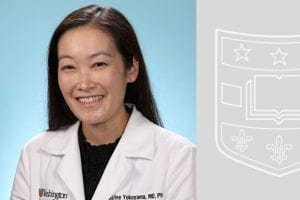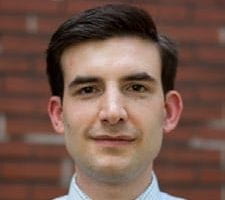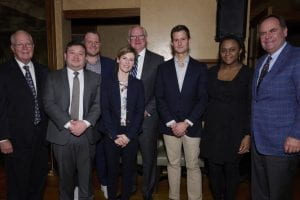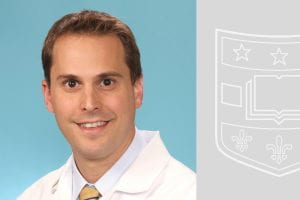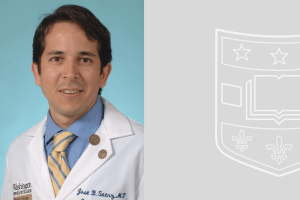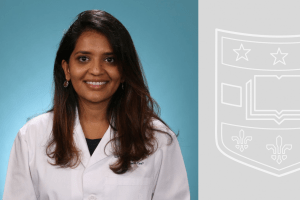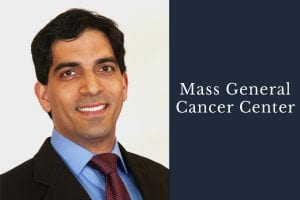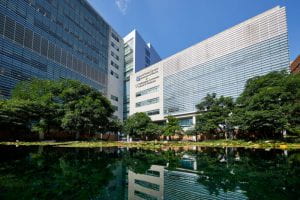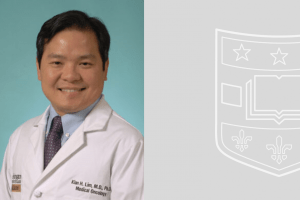Christine Yokoyama, MD, PhD received the Dermatology Foundation 2023 Dermatologist Investigator Research Fellow Award (Links to an external site)
Dr. Christine Yokoyama, Instructor in Medicine in the Division of Dermatology was announced as one the 2023 Dermatology Foundation Research Award Recipients. Dr. Yokoyama is Graduate of the Washington University Medical Scientist Training Program (MSTP) and currently a member of the Oliver Langenberg Physician Scientist Training Program, (PSTP).
David Russler-Germain, MD, PhD, Receives 2 Fellowship Awards (Links to an external site)
In his LRF research, Dr. Russler-Germain aims to study how mutations in a gene known as ZNF608 may contribute to the formation of lymphoma. “From our preliminary understanding of ZNF608, we hypothesize it plays a key role in protecting B cells from inappropriate activation of the machinery normally used by immune cells to alter their […]
Max Peterson, MD, PhD, Receives Knowlton Incentive for Excellence Award (Links to an external site)
Six Department of Medicine physicians received the Knowlton Incentive for Excellence award during an award ceremony hosted by The Foundation for Barnes-Jewish Hospital on November 28, 2022. The awards recognize and support medical residents who exemplify a compassionate spirit combined with outstanding knowledge and skill.
Laura Marks, MD, PhD (PSTP Alumni), contributes to American Heart Association statement on injective drug use infective endocarditis (Links to an external site)
In August 2022, the American Heart Association released a statement outlining new recommended guidelines for managing infective endocarditis in people who inject drugs, providing a timely and comprehensive approach to the management of the disease than what was previously provided by the AHA. With the incidences of infective endocarditis cases among people who inject drugs is on […]
Kory Lavine, MD, PhD leads $6mil grant focusing on cardiovascular inflammation and heart failure
A new grant for researchers at Washington University School of Medicine in St. Louis will fund research investigating the role of the immune system in heart failure. Finding ways to harness beneficial immune cells could lead to new therapies that encourage the heart to heal after injuries. The research will build on work led by […]
José Saenz, MD, PhD, awarded the 2022 Young Physician Scientist Award on behalf of the ASCI
Dr. José Sáenz trained as a physician-scientist at the Washington University in St. Louis School of Medicine where he learned to frame basic science questions in a broader clinical context. While his initial research interests were varied, he ultimately became drawn to microbial pathogenesis and the ability of bacteria to manage and exploit interactions with […]
Naina Rengarajan, MD, PhD, receives Medical Dermatology Society Mentorship Award
Congratulations to Dr. Naina Rengarajan, PGY-3, who was recently awarded a competitive Medical Dermatology Society Mentorship Program award. She will be working at the National Institute of Health with Dr. Heidi Kong, who is a world expert studying the human microbiome’s role in inflammatory skin diseases.
Shawn Demehri, MD, PhD, elected to the ASCI
Mass General Cancer Center physician-scientist Shawn Demehri, MD, PhD, has been elected to the American Society for Clinical Investigation (ASCI) as part of ASCI’s new class of members for 2022. Dr. Demehri is the Director for the High Risk Skin Cancer Clinic, he is a board-certified dermatologist and a principal investigator at the Center for Cancer Immunology, and Cutaneous Biology […]
NIH funding to School of Medicine hits all-time high
Researchers at Washington University School of Medicine in St. Louis were awarded $575.8 million in funding from the National Institutes of Health (NIH) in federal fiscal year 2021, according to the School of Medicine’s 2021 State of the School Report, an increase of nearly $88 million over FFY2020. This is an all-time high for the […]
Dr. Kian-Huat Lim identifies drug compound that makes pancreatic cancer cells more vulnerable to chemotherapy.
Pancreatic cancer is extremely difficult to treat. By the time it is detected, the cancer often has reached an advanced stage, and patients usually do not survive longer than one year after diagnosis. An aggressive chemotherapy regimen is the first-line treatment, but the side effects can be severe, and many tumors stop responding to treatment. […]
